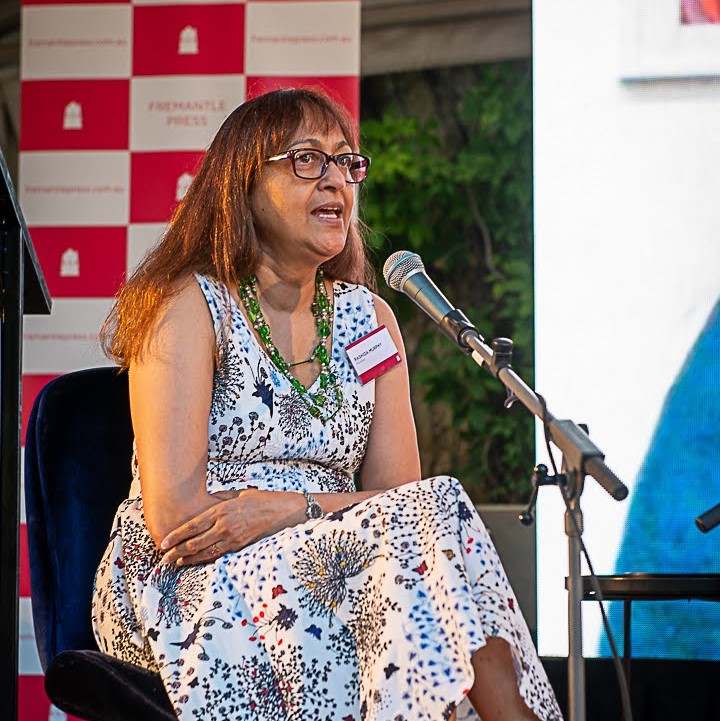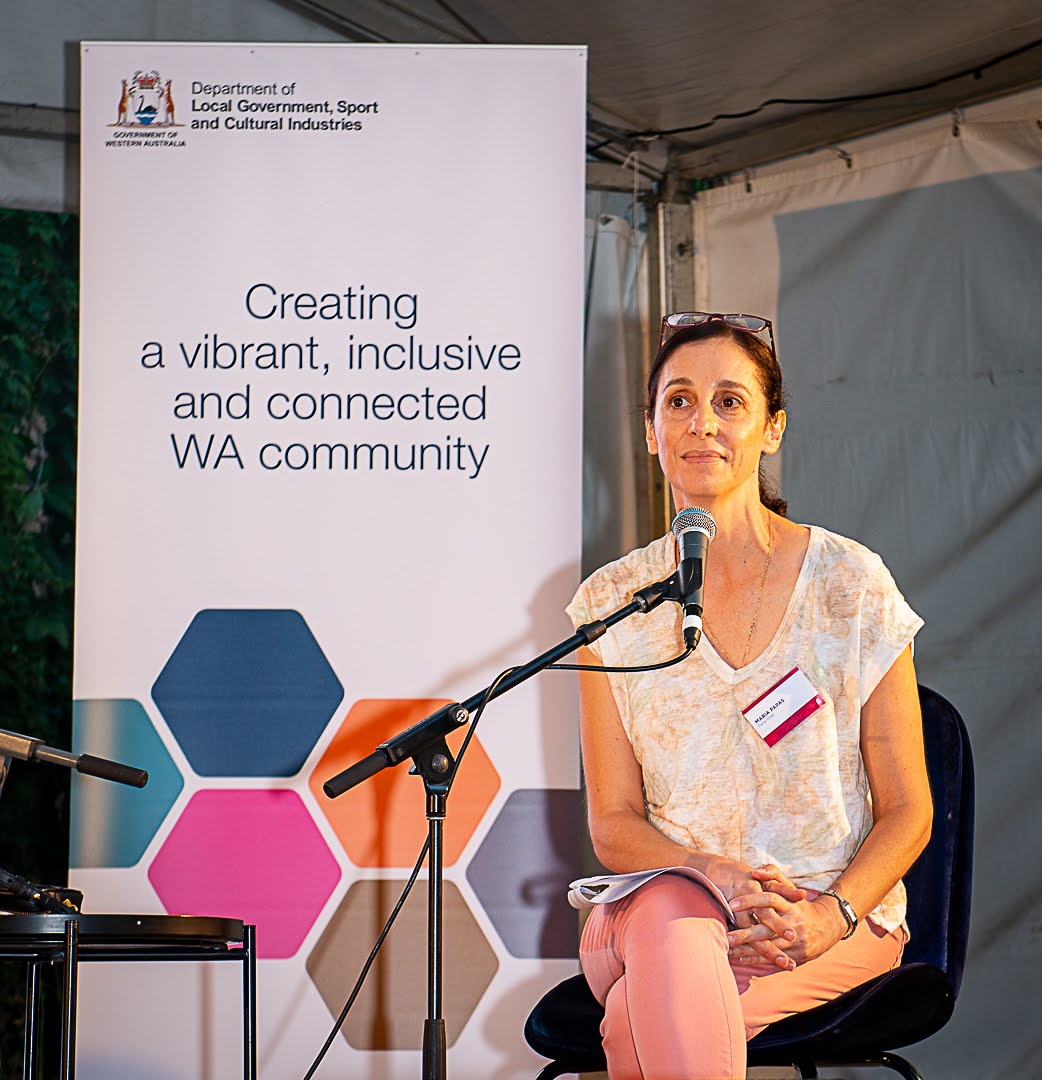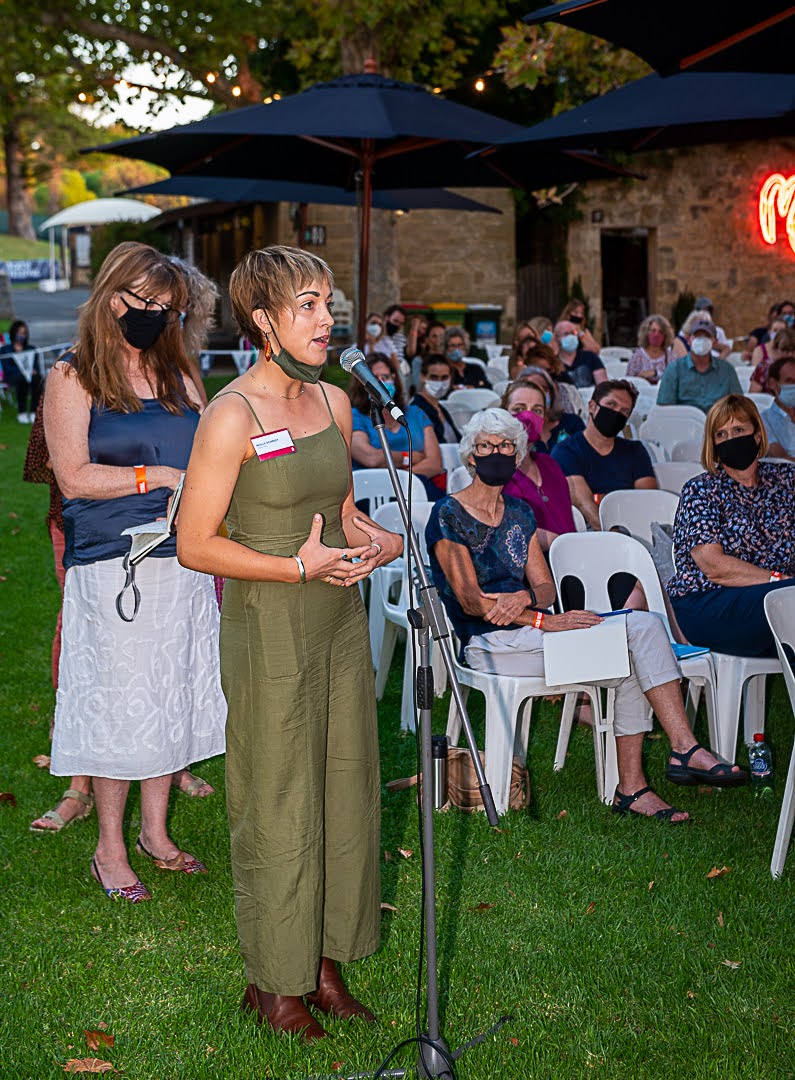Isabella Colton shares what she learned from the Business of Being a Writer panel about delving into the ethics of representation

The Ethics of Representation panel, part of the Fremantle Press event ‘The Business of Being a Writer’ at the Perth Festival Writers Weekend, was an eye-opening experience. Hosted by the 2020 City of Fremantle Hungerford Award winner, Maria Papas, the panel featured Magabala Books Publisher Rachel Bin Salleh, poet Emily Sun, novelist and mentor Rashida Murphy, and psychiatrist and children’s book author Professor Helen Milroy.

Maria introduced the topic of what must be taken into account to make ‘our writing more inclusive and authentic … without appropriating other people’s stories or misrepresenting lived experiences’ by asking panellists what motivated them to write. Emily Sun, author of the award-winning poetry collection Vociferate, said writing was a very personal thing that helped untangle her emotions. Rashida Murphy, author of The Historian’s Daughter and The Bonesetter’s Fee and Other Stories, said ‘I write from a place of deep joy, and the anger I sometimes feel when discussing matters of representation, comes from being inadequately represented, misrepresented or dismissed when I make a point about (for example) white people writing about brown people. I write about crowded places to provide an anti-colonial perspective and a sense of displacement, sorrow and rage. My writing can contain contradictions and still sustain me.’
Speaking from an Indigenous perspective, Helen Milroy stressed the importance of stories within First Nations culture. ‘We’re all born into stories … generational stories, cultural stories and we live life through our stories. My stories are deeply embedded in Indigenous roots, alive, related and with purpose,’ she said. Helen also highlighted the importance of ethical representation for children, especially for young Indigenous peoples and youth from minority groups. She said First Nations children have grown up with Australian media and literature depicting them as primitive and stupid. And stories filled with negative labelling and discriminatory stereotypes was not something our contemporary society had extinguished. ‘If children can’t see themselves in stories and in local literature, they don’t know who they are, or where they fit. Negative images and stereotypes further disadvantage these children; reinforcing the idea that they will fail before they even try … every child from every ethnicity should be reaching for the moon – every child should be able to be what they want to be, especially in a country with such an abundance of wealth,’ she stated.

When asked to address how writers could decide whether they were the right person to tell a particular story, Rachel Bin Salleh spoke about her book, Alfred’s War, which is about returned Indigenous servicemen. Rachel said, ‘As you can tell I am not male, I am not a digger and I haven’t been to war.’ However, she said her family’s lived experience and the extensive research she conducted allowed her to write the story truthfully and authentically. She continued, saying that as a publisher it was ‘important to be able to say, “write your truth”. Write what you know – writing is explicitly about what you say and what you don’t say … words can have real life implications, especially for the peoples that don’t have voice or agency; they live with the consequences of other people’s words or actions.’
When Maria turned the conversation to what readers are looking for, Emily said, ‘Before I begin, I was very nervous about this session – it’s always hard to gauge where people are at, and this is quite difficult for me to talk about.’ She discussed Pearl S. Buck’s 1930s novel, The Good Earth, which was written by a white woman about a Chinese farmer’s experience. Emily said that there was a point in history in which Pearl would have been considered an ally of Chinese people, but were it written today, she probably wouldn’t read it.
Rashida said she made ‘political decisions’ about what she reads, with fifty per cent of her reading being non-white. She said, ‘I won’t read Rudyard Kipling; I’ve written essays about how much I won’t read him’. Rachel spoke on how she reads broadly, leaning towards writing by white males in commercial trade fiction, ‘because, for some odd reason, their writing includes a complete lack of consequences for the characters. They live in this fantasy world that I really love to read about – no real life effects, but hey, we’re all here reading it.’

The lively discussion ended with some advice they would have given their younger writing selves or advice for new writers in the audience. When embarking on her career, Rashida was told there was no market for her kind of stories, so said to ‘ignore expert advice and do what you want.’ Helen was also told her stories were never good enough to be published, so implored readers to ‘be brave, be bold and be creative – don’t believe the naysayers.’ I found Rachel’s advice – for audience members excluded from the national narrative – very powerful. She said, ‘You matter, you are important, take up space, don’t apologise, use your voice, your story is just as important as what’s already out there.’
At the end of the session, one of the audience members asked the panellists about how to be a better ‘ally’. I found the answers and ensuing conversation on stage to be particularly impactful. Rashida spoke on the problematic nature of the term ‘ally’, specifically in the way that ‘people, especially white, middle-class heterosexual people, assume POC need help, rescuing and being allies with.’ She advised the audience to ‘unpack what you mean by ally and take it from there.’ Helen expanded on this answer, providing an Indigenous perspective: ‘if we’re going to get anywhere, we will need to have partnerships that are built on the notion that comes from an Indigenous language that translates to “you have to walk together in true friendship”’.
An important way to support diverse creators and writers is by reading and buying their work; read widely and listen to what they have to say.

About Isabella
Isabella Colton is a second-year student, completing a Bachelor of Arts at Curtin University. Her love for books and avid interest in current affairs sparked her desire to pursue a double major in Professional Writing and Publishing, and Journalism. She’s eager to build her skills as a writer and get more deeply involved with the Perth writing community.


